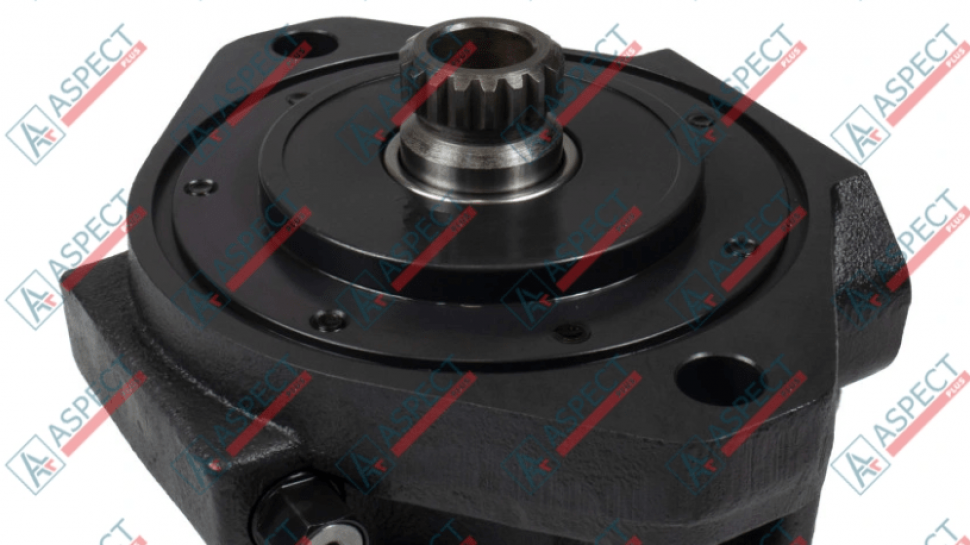Linde hydraulic pumps are synonymous with German engineering excellence, renowned for their high efficiency, reliability, and durability across demanding applications in heavy equipment and industrial systems. These axial piston pumps operate under extreme pressure and high rotational speeds, making them highly susceptible to wear and mechanical stress. At the core of their consistent performance and, crucially, their low noise output, lie the bearings. A bearing's failure, or even marginal deviation from precision, can lead to immediate noise and vibration, signalling catastrophic damage to the entire hydraulic pump. This article provides an expert analysis of the vital role of high-quality bearings in Linde hydraulic pumps, detailing how parts quality is the primary defense against destructive vibration and ensures the overall longevity of the hydraulic system.
Why Bearings are the Silent Guardians of Hydraulic Pumps
A hydraulic pump (like those in the Linde HPR or HPV series) contains multiple rotating and oscillating components: the main shaft, the cylinder barrel, and the pistons. The bearings (typically ball, roller, or sleeve bearings) serve three critical functions:
- Support High Radial and Axial Loads: They absorb the massive axial forces generated by the pistons and the radial loads from the drive shaft and external forces.
- Ensure Precision Alignment: They maintain the precise rotational alignment of the cylinder barrel and shaft, which is necessary for the pistons to move smoothly and effectively.
- Minimize Friction and Vibration: Bearings reduce friction, ensuring smooth operation, which directly contributes to the characteristic quietness and efficiency of Linde hydraulics.
When bearings begin to fail, they transmit shock loads and misalignment throughout the hydraulic system, leading directly to the primary symptoms of pump failure: excessive noise and vibration.
The Destructive Cycle of Noise and Vibration
In a Linde hydraulic pump, noise and vibration are not just side effects of wear—they are active agents of destruction, accelerating the pump's demise.
1. The Causes:
- Manufacturing Defects (Low Quality Parts): Cheap, low-quality bearings often have microscopic imperfections, inferior materials, or improper internal clearances. These defects introduce vibration immediately upon installation, accelerating the wear process.
- Contamination: Abrasive particles (dirt, metal shavings) or water in the hydraulic fluid damage the polished surfaces of the bearing races and rollers. This is the primary external cause of bearing wear and tear.
- Lubrication Failure: Hydraulic pump bearings rely heavily on the hydraulic fluid for lubrication and cooling. Degraded or contaminated fluid leads to metal-on-metal contact, generating immense heat and initiating the noise cycle.
2. The Consequences:
- Noise and Vibration: A damaged bearing produces a noticeable, often high-pitched, whining or grinding sound. This vibration then transmits through the casing, hoses, and frame of the heavy equipment.
- Loss of System Precision: Vibration causes the precise clearances within the pistons and cylinder barrel to momentarily change, leading to internal leakage, a drop in pressure, and reduced performance and efficiency.
- Catastrophic Failure: Unchecked vibration eventually causes the bearing cage to break apart or the rollers to seize. This often results in the main shaft fracturing or the cylinder barrel skewing, causing shrapnel damage to the entire Linde hydraulic pump.
Diagnostics and Prevention: Focusing on Bearing Health
Effective preventive maintenance and diagnostics must prioritize the health of the bearings as they are often the first point of failure
- Oil Analysis (Condition Monitoring): This is the most effective diagnostic tool. Analyzing the hydraulic fluid for wear metals (especially iron, chrome, and copper/lead, which make up bearing alloys) provides an early warning of bearing wear long before the operator hears any noise or notices a performance drop.
- Sound and Vibration Analysis: Specialized acoustic or vibration monitoring equipment can pinpoint unusual frequencies, allowing mechanics to accurately identify a failing bearing before it causes secondary damage.
- Visual Inspection during Repair: During any pump repair, the bearings must be meticulously inspected for signs of pitting, scoring, or discoloration (heat damage). Even if the pump failed for another reason, the bearings should be replaced to ensure reliability.
The Aspect Plus Solution: Quality Parts Ensure Longevity
The key to preventing premature Linde hydraulic pump failure is the strategic choice of spare parts. Using a low-quality bearing in a high-precision Linde pump is a critical mistake that will erase any initial cost savings.
- Guaranteeing Quality: Our commitment at Aspect Plus is to supply only high-quality bearings and genuine Linde parts that meet or exceed the OEM's strict specifications for material composition, surface finish, and hardness. This guarantees the highest level of wear resistance and minimal internal friction.
- Preventing Noise and Downtime: By providing quality spare parts, we ensure the bearings maintain the precise alignment of the main shaft and eliminate the source of destructive vibration, thereby extending the longevity and maintaining the low-noise operation of your Linde hydraulic pump.
Conclusion
The role of high-quality bearings in Linde hydraulic pumps is nothing short of fundamental. They are the frontline defense against the destructive forces of noise and vibration, which directly lead to catastrophic failure and compromised hydraulic system efficiency. For owners and operators of heavy equipment, making the strategic choice of using only quality spare parts for the bearings is the most effective form of preventive maintenance. This simple commitment to parts quality guarantees the reliability, longevity, and sustained performance of your high-value Linde hydraulics.
For expert advice on diagnostics, high-quality bearings, and a reliable source for genuine Linde parts, contact the professionals at Aspect Plus.



Share the News